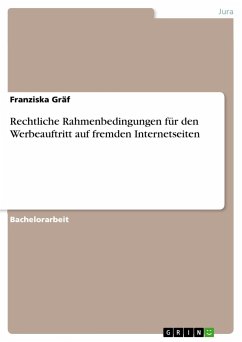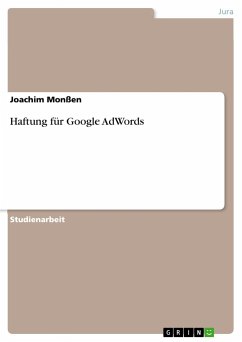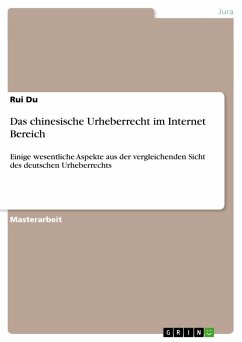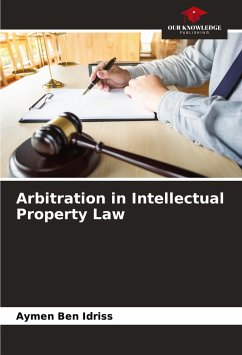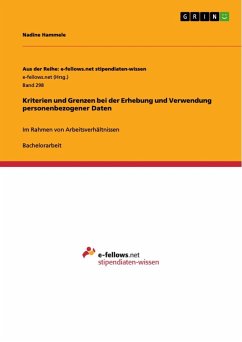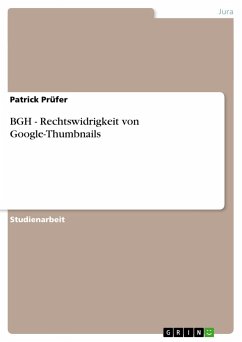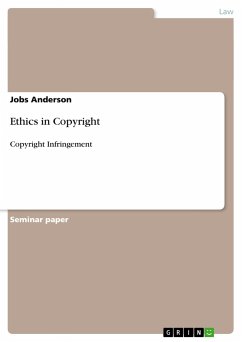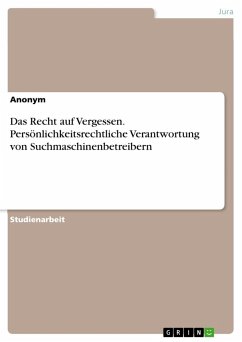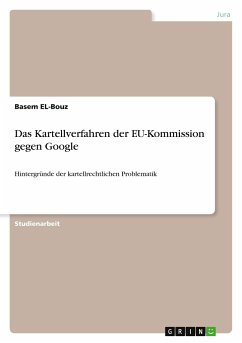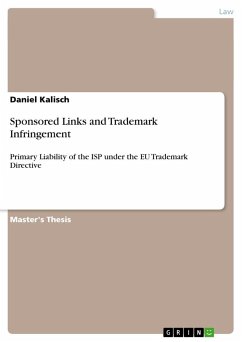
Sponsored Links and Trademark Infringement
Primary Liability of the ISP under the EU Trademark Directive

PAYBACK Punkte
0 °P sammeln!
Master's Thesis from the year 2011 in the subject Law - Civil / Private, Trade, Anti Trust Law, Business Law, grade: 16/20 , Leuven Catholic University (Faculty of Law), course: LL.M. Program, European IP Law & Business Law, language: English, abstract: ISP's legal liability under trademark law with regards to Keyword Advertising is not well developed in literature and jurisdiction. Despite some few judgments in this field, it is obvious that also in other areas of law national courts do mainly focus on ISP's secondary liability without any clear distinction from primary liability. There seems...
Master's Thesis from the year 2011 in the subject Law - Civil / Private, Trade, Anti Trust Law, Business Law, grade: 16/20 , Leuven Catholic University (Faculty of Law), course: LL.M. Program, European IP Law & Business Law, language: English, abstract: ISP's legal liability under trademark law with regards to Keyword Advertising is not well developed in literature and jurisdiction. Despite some few judgments in this field, it is obvious that also in other areas of law national courts do mainly focus on ISP's secondary liability without any clear distinction from primary liability. There seems to be also some hesitation to base a primary liability on a failure to act. For that reasons this paper analyses primary liability of an internet reference provider like Google (TM) for Keyword Advertising under Art. 5 EU Trademark Directive taking into account not only positive activities but also a failure to act. Apart from storing Keywords and displaying ads also other contributions of Google like its Keyword Tool and approval process for ads or the ISP's knowledge of infringements are contemplated. Starting point of the investigation is the recent decision of the ECJ to Google Adwords (TM)from 23.3.2010 where the court held that the provider can not be liable for a trademark infringement as the ISP did not use a sign itself in own commercial communication. The author goes beyond this judgment and suggests to apply this new criterion of attribution to all forms of trademark uses within the entire Art. 5 EU Trademark Directive including an omission of the provider. By establishing a link between Ecommerce Directive and Trademark Directive the writer defines the scope of trademark protection and examines some minimum requirements to identify a trademark infringement of the ISP. This is absolutely a new method as no literature exists. As a first main result it was found that Google is not directly engaged in a trademark infringement by its positive actions. By contrast, the research made clear that actual knowledge of ongoing infringements is the core element to establish a primary liability for a failure to stop or prevent trademark infringements and makes the ISP use a trademark itself in its own communication. This paper shall contribute to define a clear distinction between direct and indirect infringements and it also wants to sensitize the reader for the legal importance and consequences of actual knowledge of the ISP.




